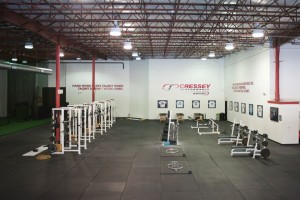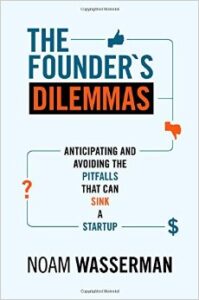
Random Thoughts on Long-Term Fitness Industry Success – Installment 7
I didn’t get around to writing up one of these blogs in the month of April, so here’s an edition for May. Before I do, though, I should give you a quick heads-up about a one-day business mentorship my business partner, Pete Dupuis, and I are running at our Massachusetts facility on June 16. We did a casual social media announcement and have already sold out 15 of the 20 spots, so don’t delay if you’re interested. This is a great fit for anyone who owns a gym or aspires to do so. You can learn more HERE.
1. Let other people make the mistakes for you.
I posted this Tweet a little over a year ago, and it got quite a bit of love.
I’ll venture a bold assertion: the fitness industry is really bad in this regard. Maybe it’s the combination of:
a. competitiveness we get from former athletes
b. stubbornness we get from being willing to endure brutal training protocols ourselves
c. a lot of people jumping into entrepreneurship simply because they like to exercise, not because they really understand what goes into running a business
Whatever it is, the most successful gym owners I know are the ones who have reached out to people who’ve failed (sometimes miserably) before them to learn their lessons. The ones that struggle to have this success seem to always fail for the same old reasons, not new ones.
I’m sure this is common in many industries, but the fitness industry has got to be pretty high up there. I think that’s why Pete and I are in a good place to teach the aforementioned mentorship. We’ve been screwing up and learning from it for ten years now!
2. Don’t criticize what you don’t understand.
A few weeks ago, there was a highly publicized arm injury in Major League Baseball. I got calls/emails from three separate major media outlets asking if I could comment on how mismanagement may have contributed to the problem. I politely declined all the interviews.
It’s not my place to pass judgement on anyone else without having full knowledge of a situation – and even then, hindsight is always 20/20. I choose to try to stay unconditionally positive and work on finding solutions instead of pointing out more problems. Moreover, being a Monday Morning Quarterback will invariably come back to bite you in the butt; the fitness and strength and conditioning fields are a very small world. Stay positive.
3. Use “impostor syndrome” to your advantage.
In a recent Facebook Q&A, someone asked about “times when you’ve experienced, and how you’ve handled, impostor syndrome. I say that because in the past, when it’s crept up on me, I’ve specifically thought ‘I wonder how Cressey handles this.’ Because we all do, I wonder how even undeniably successful and accomplished coaches process it.”
Wikipedia defines impostor syndrome as “a concept describing high-achieving individuals who are marked by an inability to internalize their accomplishments and a persistent fear of being exposed as a ‘fraud.’ The term was coined in 1978 by clinical psychologists Pauline R. Clance and Suzanne A. Imes. Despite external evidence of their competence, those exhibiting the syndrome remain convinced that they are frauds and do not deserve the success they have achieved. Proof of success is dismissed as luck, timing, or as a result of deceiving others into thinking they are more intelligent and competent than they believe themselves to be.”
Here was my response: “There are actually a ton of founders of big companies who are massively pessimistic about their businesses. Noam Wasserman writes about this in The Founder’s Dilemmas. I think it parallels a lot of high level athletes like Jordan, Kobe, etc. who are insanely critical of themselves and always looking to improve on something. So, my response would be that I am very hard on myself and my businesses, and always looking for ways to improve. My feeling is that it’s normal and probably even healthy to second guess yourself – but only if you direct that mindset toward continuous improvement, as opposed to wallowing in frustration.”
As is often the case, life is 10% what happens to you and 90% how you respond to it. I just choose to use it to make me better instead of dragging me down.
4. If you want to really learn something, teach it.
I’ve been to a number of seminars over the years and repeatedly heard the phrase, “The hardest day is Monday.” In other words, the hardest part of the educational experience is knowing how to apply it after a weekend course is over.
This is why we often use Cressey Sports Performance staff in-services as opportunities of our coaches to share – or teach – what they learned to the rest of their staff. Three things happen in these instances:
a. The attendee is forced to go back through his notes and “reiterate” the most important points.
b. The attendee has to learn how to take complex topics and make them understandable to an informed audience (our staff) before they go to a less informed audience (our clients), so there is a progressive simplification of things.
c. The rest of the staff helps to clarify how these new principles fit in our overall programming and coaching philosophies. They’ll call BS if they see it, too.
Effectively, being forced to teach new topics shortly after you’ve learned about them serves as an audit that allows you to get to the useful, applicable information as quickly as possible. If you’re looking to improve your approach to professional development, start teaching more!




